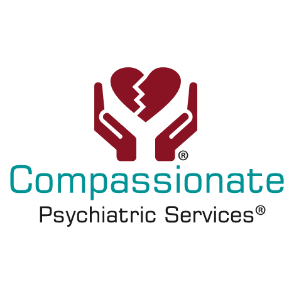
Seasonal affective disorder (SAD) is a type of depression that’s related to changes in seasons — SAD begins and ends at about the same times every year. If you’re like most people with SAD, your symptoms start in the fall and continue into the winter months, sapping your energy and making you feel moody. These symptoms often resolve during the spring and summer months. Less often, SAD causes depression in the spring or early summer and resolves during the fall or winter months.
You might try to brush off the blues you’re feeling as no big deal or feel like you need to tough it out, all on your own, but there are steps you can take to improve your mood, so you feel better. Treatment for SAD may include such things as light therapy (phototherapy), psychotherapy, and medications.
The majority of people who suffer from SAD feel the most severe symptoms in the late fall and winter, usually subsiding as the days get longer in the spring and summer. Fewer people feel SAD in reverse where their symptoms appear in the spring and summer. No matter which season, SAD symptoms may start out mild and become more severe as the season progresses.
SAD; signs and symptoms:
- Feeling lethargic and sad, most days if not every day
- Losing interest in daily activities that you once enjoyed
- Insomnia or excessive sleeping
- Overindulging in food cravings, usually consisting of carbohydrates and sugar, resulting in weight gain
- Difficulty in concentrating and following through with what needs to be done
- The feeling of hopelessness, worthlessness, shame, or guilt
- Suicidal ideations
Winter-onset of SAD symptoms might include:
- Sleeping too much
- Craving for comfort foods high in carbohydrates and sugar
- Uncontrollable crying or sadness for no reason
- Weight gain
- Lethargy and low energy
Symptoms of summer-onset of SAD, sometimes referred to as summer depression, might include:
- Insomnia or excessive sleeping
- Poor appetite
- Weight loss
- Agitation or anxiety
- Increased irritability
Who is susceptible or at an increased risk of SAD?
- People who are at increased risk of SAD may also suffer from mental health disorders such as bipolar disorder, or episodes of mania.
- SAD symptoms are highest among those between 18-29, followed by those aged 45-64.
- Women are more likely than men to suffer SAD symptoms
Though the specific cause of SAD is unknown, some factors that may contribute to this disorder may include:
- Circadian rhythm and the effects of decreased sunlight in fall and winter may cause winter-onset SAD. This decrease in sunlight may disrupt your body’s internal circadian rhythm, which may lead to depressive moods
- Decreased levels of serotonin, a result of reduced sunlight and shorter days, may play a role in serotonin, a brain chemical (neurotransmitter) that affects mood and could trigger depression.
- Disrupted levels of melatonin due to the change in seasons can create sleep issues directly related to a mood disorder.
Factors that may increase your risk of SAD may include:
- If your family members suffer from SAD, you may be more susceptible to suffering from SAD or depression yourself
- Having a diagnosis of major depression or bipolar disorder makes you more prone to SAD symptoms
- SAD symptoms appear more often among people who live far from the north and south equator, resulting in decreased sunlight in the winter and longer days during the summer
- Vitamin D, produced by soaking up the sunlight, helps to boost serotonin activity and plays a big role in regulating your body’s mood, sleep, digestion, and sexual desire.
Feeling down every once in a while is completely normal but if you think saddened for days at a time, and you can’t get motivated to do activities you usually enjoy, seeing your health care provider is recommended. This is especially important if your sleep patterns and appetite have changed, you turn to alcohol for comfort or relaxation, or you feel hopeless or think about suicide.
SAD should be taken seriously, as with other types of depression, it can become worse and lead to complicated problems when not treated. Some of these problems show up as:
- Social withdrawal
- Inability to perform effectively at work or school
- Substance use disorders
- Other mental health disorders such as anxiety or eating disorders
- Suicidal ideation
Although there is no way to prevent developing SAD, you can take steps to manage your symptoms. Preparing ahead and seeking professional treatment in advance may help prevent complications from this mood disorder. If you or a loved one struggles with symptoms related to SAD, Compassionate Psychiatric Services may be the solution for you. Give our office a call today at 469-200-4093 and speak with a specialist. For more information visit our website at www.compassionatepsychiatry.org

